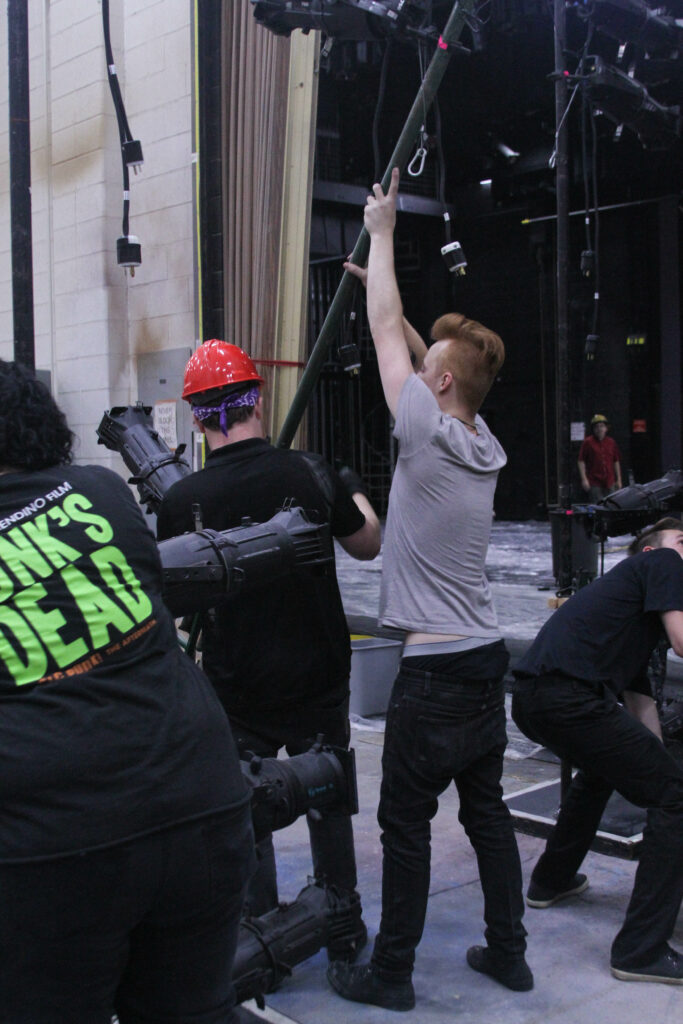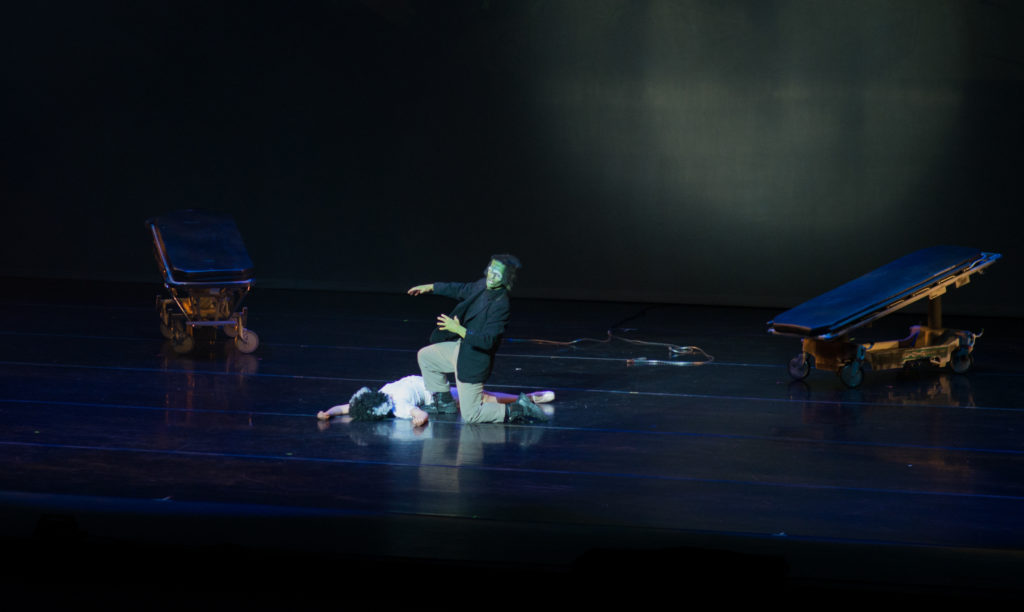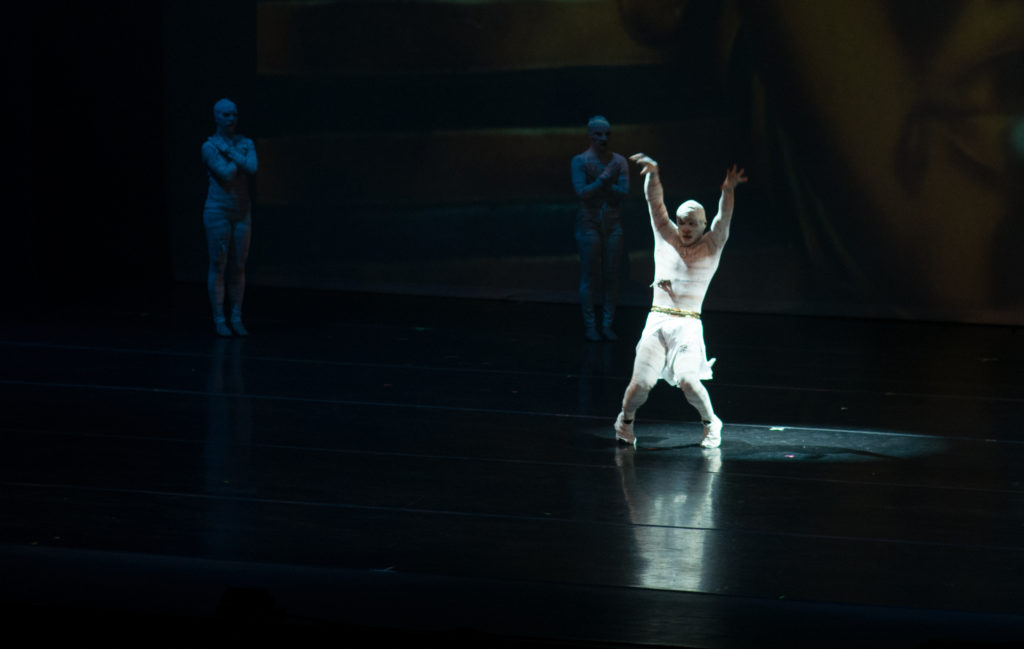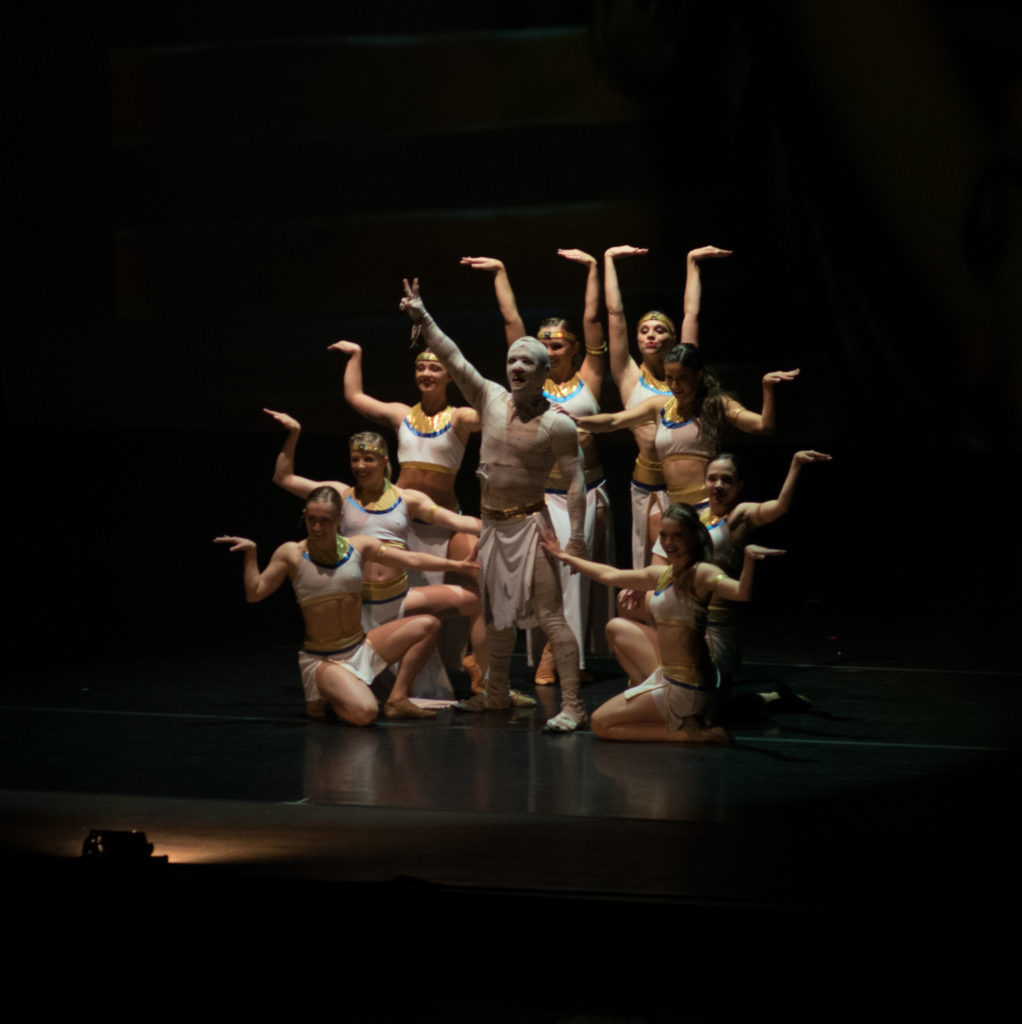
Theatre is a collaborative form of fine art that uses actors to present the experience of a real or imagined event before a live audience in a specific place, often a stage. Actors are seen on stage performing, but what goes on behind the scenes of a theatrical production?
According to Korey Lamb, Weber State University’s Browning Center production stage manager, there are multiple aspects of a theatre production, other than actors, that help make it successful. These aspects include hair and makeup, costume design, set design, set construction, props, lighting and sound design.
Each technical aspect of theatre plays an important role in the execution of a particular production. When these aspects work cohesively, a production is more likely to be successful.

While sometimes overlooked, the technical elements of theatre can make or break a show according to Weber State University student Colton Lynch.
“The tech guys are the best,” Lynch said. “Having performed in some shows, I know how often tech crew is at the theater working on different elements. Seriously, it’s so impressive what people can do with lights, sounds and props. Tech really helps tell the story on stage.”
According to Lynch, people are drawn to theatre because it brings people together and allows them to be whoever they want to be. Additionally, Lynch loves the lighting and sounds of a show because they can “give the audience an idea on what the actor is thinking or feeling and add so much power to a character.”
Former Layton High School theatre teacher and frequent director at Beverly’s Terrace Plaza Playhouse Dennis Ferrin feels that a show would not be complete without technical elements.
“As a director, half the fun of theatre is having an idea in your mind and watching it come to life on stage,” Ferrin said. “I know, without a doubt, that the visions and ideas I have for shows could not possibly be conveyed correctly without the help of technology and the production team.”
For these technical aspects to work together, thorough communication among the production team is recommended. The team meets before the actors are cast to discuss the time period, budget, schedule and goal of the production.
Each member of the production team is expected to read the script multiple times. Lamb reads the script three times. The first time is for pleasure, the second time is to make notes and develop ideas, and the third time is to edit notes and complete ideas.
“Being a production stage manager is a lot of fun and a lot of work,” Lamb said. “I am confident saying that each technical team member spends more than 100 hours preparing for a show.”
According to Lamb, the production team will meet months before the actual performances to ensure each technical aspect of a show is executed correctly.

For the production team, rehearsals are spent adjusting lighting sequences, developing sound effects and constructing the set. A director may look for preparation and organization qualities in an individual when choosing a technical team. Each aspect of technical theatre is assigned to a person, designer or team.
For a lighting designer, manually setting lights can be time consuming. Each light that is hung and pointed at the stage has a particular purpose. Controlling the light’s different colors, washes and intensity are just a few of a lighting designer’s responsibilities.
Particular lights can range from $1,000-$2,000 per fixture. Spot, ellipsoidal, fresnel and intelligent lights are some of the fixtures that are used to illuminate a stage, each with its own purpose and position.
Sound cues and equipment are equally as important as lighting. Each actor may be equipped with a microphone and may not be heard speaking if the device isn’t working properly. Additionally, actors can rely on sound cues as reminders of what to say or do while performing on stage.
Developing sound effects such as a car revving its engine or a bird chirping can add depth and validity to a theatrical production. Assuring the audience can hear the actors on stage, the microphones are working and the sound or music cues are delivered at the correct time are responsibilities of the sound designer.

Some microphones used by actors can cost hundreds of dollars and may be fragile. Speakers used to amplify sound can cost thousands of dollars but can assist in making a theatrical production more appealing to the audience.
Designing and constructing a set may be particularly time consuming and challenging. Artists gather to sketch and brainstorm set pieces and ideas. Building the set after it has been designed may take weeks to complete, depending on the complexity of the piece.
“Each show varies in complexity. Some are simple and don’t take much time, while others take a lot of money and energy,” Lamb said. “The budget for a production varies, but it is typically pretty dang expensive. If people truly understood what takes place behind the scenes, what helps make a show great, I think there would be a lot more people interested in doing it.”
Theaters local to Ogden, such as Beverley’s Terrace Plaza Playhouse, Ziegfeld Theater and Peery’s Egyptian Theater, have technical production teams assigned to each show.
“Next time you go to see a show, pay close attention to the lights, sounds and sets,” Ferrin said. “You’ll be amazed at the impact those elements have on the show.”














